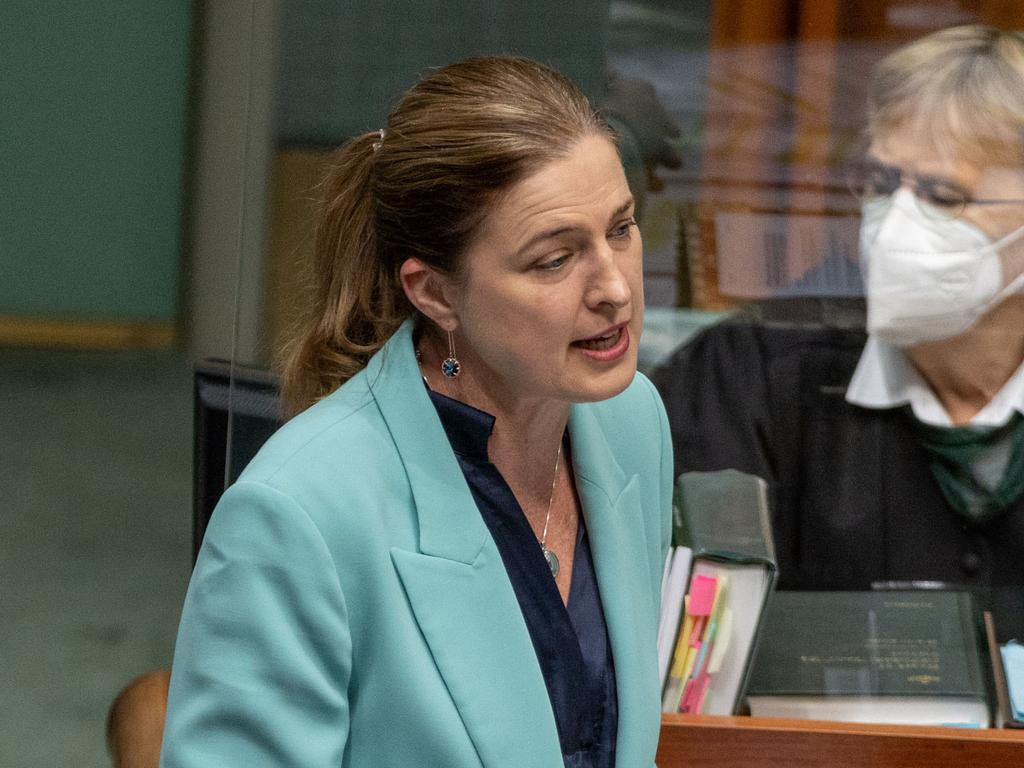Labor can’t escape bad policy ideas on housing and scripts


There are several standout examples of bad policy at the moment, but let me concentrate on just two.
The first is the stalled establishment of the Housing Australia Future Fund and the second is the rushed implementation of 60-day pharmaceutical scripts.
To be frank, the HAFF is a really bad idea. Indeed, some of the reasons the Greens are giving to oppose its establishment are completely on the money. Why would the government borrow $10bn, at a currently high rate, only for the money to be invested in an uncertain environment and generate an uncertain income stream? To then claim a guaranteed annual dividend of $500m is to effectively cook the books.

On the government’s own estimates, the flow of dividends is expected to generate enough income to fund only 30,000 social and affordable houses across five years.
This is a trivial number given there are more than 163,000 households on social housing waiting lists alone. And even the figure of 30,000 over five years looks hopelessly optimistic given the implied size of the fund’s contribution for each dwelling.
Inevitably, there will be delays. It will take the best part of a year for the funds to be invested. It will take another year for the first dividends to be paid. In other words, it’s at least two years before the HAFF achieves anything at all. The fact the government has managed to find $2bn to be given now to the states to build social housing rather gives the game away. This was always the preferred route if the objective was to increase the stock of social housing.
Having said this, there has been insufficient attention paid to social housing; it used to be called public housing. Apart from the fact the cost of the construction of public housing is often excessive because of the involvement of the building unions – between 30 per cent and 50 per cent more than equivalent privately built homes – the reality is that public housing is often associated with a range of social problems for the tenants. Because of the disincentives to move, the employment rates of the tenants are generally very low and public housing estates are often riddled with crime, drug use and other anti-social behaviour.
To be sure, there are exceptions. But it is naive to think social housing, to use the modern term, should be a core solution to the current housing crisis. People are putting themselves on the waiting list out of sheer desperation rather than social housing being the preferred option.
Of course, the proposal of the Greens to have the states impose rent controls is complete madness and would lead to a further reduction in the supply of rental properties. But the government is delinquent in overlooking the option of restricting the demand side of the equation by placing various caps on the current migrant intake.
You don’t need an economics degree to realise the massive surge in the number of migrants – 400,000 this financial year and more than 300,000 next year – was always going to overheat the rental market and cause hardship for tenants.
So what about the shift to 60-day prescriptions, which is due to start at the beginning of September for a select list of common drugs? While this policy may have its good points, the processes that led to the decision were seriously defective. The lack of serious consultation with the key parties, particularly the pharmacists, and the absence of quality modelling to assess the effects of the change are both significant policy failures that can be sheeted home to Health Minister Mark Butler and his advisers.
Of course, those with predictable prescription needs will welcome the longer period between trips to the pharmacist and possibly the GP. There will be some savings. But the loss of income for the pharmacists, both direct and indirect (foot traffic inevitably generates revenue), is clearly a cost to them but may have wider implications.
The market for Pharmaceutical Benefits Scheme drugs is not an ordinary one; there is an explicit promise that all Australians who need these drugs are able to access them. It’s why it’s important that there is a wide geographic distribution of community pharmacies, which in turn partly justifies the locational rules that relate to pharmacies.
Of course, for those of us who live in the cities, there seems to be a pharmacy on every corner, with the big chains dominating. For small towns it’s a completely different picture and the local pharmacy offers much more than doling out drugs in boxes. In particular, the pharmacist may provide valuable health advice in cases where it is difficult to see a doctor.
Government policy does in fact recognise the importance of community pharmacies outside the cities and there are some specific grants in place to support their continuation. This said, the shift to 60-day prescriptions will undermine the business models of all pharmacies, something that is a real concern in rural and regional areas.
There is also the very real possibility that many of the free services pharmacies provide – advice, home deliveries, visits to nursing homes, blister packs – will have to be curtailed, which itself is a loss to the community. The worst-case scenario is the closure of some pharmacies.
The fact the minister now has decided to consult with only one large pharmacy chain rather than the Pharmacy Guild tells you a lot. The perspective of this chain, which doesn’t have a reputation for providing these additional services, is very narrow compared with the broader issues at stake.

It may be the case that the policy is still worth implementing, but without careful analysis of the costs and benefits as well as comprehensive consultation with all the affected parties, it looks like very poor policy. The loss of incidental services, but particularly the closure of pharmacies, would likely tip the balance to net costs. The fact the government has decided to bring in McKinsey & Company, a very expensive consulting outfit, to examine the department’s proposal is highly revealing.
Of course, these two examples of bad policy are not the end of the story. A particular standout at the moment is the botched transition of the electricity grid and the clear impossibility of reaching the targets the government has set down, including the commitment to 82 per cent renewables.
The inevitable delays in the rollout of the additional transmissions lines required plus the lack of investment in reliable backup generation mean there will have to be a change of course very soon.
We just need to pray that the senior ministers summon up Keating’s dictum that good policy is good politics.







It was Paul Keating who said good policy was good politics. Sadly, it’s a lesson that largely has been ignored by politicians for nearly two decades.